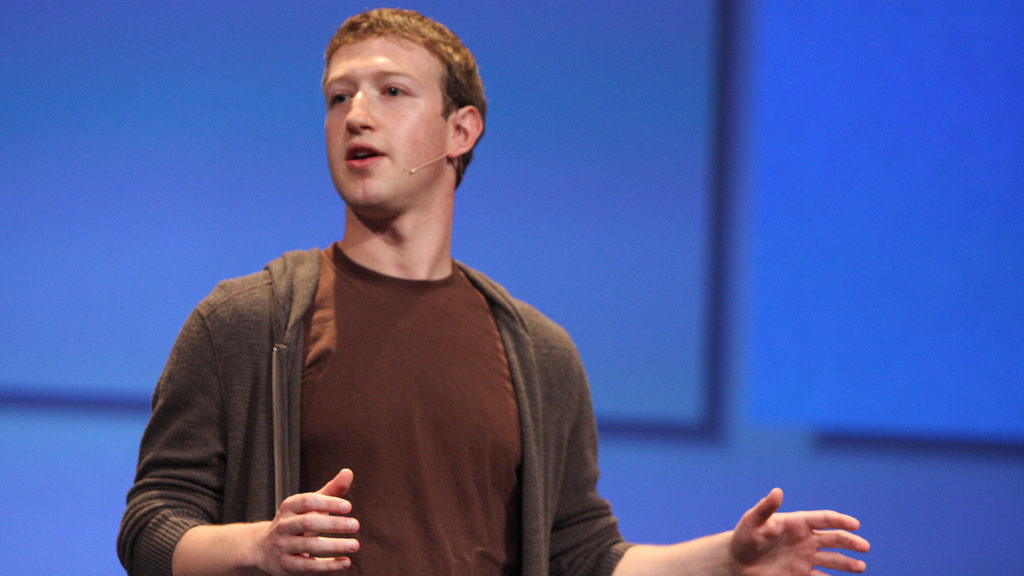The horrible political idea of government (read—taxpayer) sponsored basic income continues to roll off the tongues of high-profile figures in the tech industry as a solution to alleviate global poverty.
Mark Zuckerberg, the CEO of Facebook worth a whopping $61.9 billion, is one of these executives voicing the belief and optimism that if a universal basic income (UBI) was installed in the United States, it would actually work.
Notably, Zuckerberg, in his recent commencement address to the 2017 graduating class of Harvard University, justified a UBI as a means to solve a variety of the world's issues.
"We should have a society that measures progress not just by economic metrics like GDP, but by how many of us have a role we find meaningful," Zuckerberg said in his address, via Business Insider. "We should explore ideas like universal basic income to make sure everyone has a cushion to try new ideas."
Zuckerberg's public endorsement proves that he wants to fund people's ability to purchase basic needs and have a "safety net" during times of economic uncertainty.
Here's the deal, though: UBI is a still a form of welfare that can illicit idleness and dampens productivity—while also increasing entitlement.
Why UBI Doesn't Work
Contrary to the reasoning that UBI can close wage gaps and economic inequality disparities, the concept won't work because it is impractical. According to Bryan Caplan for EconLib:
Overall, the UBI probably gives even worse incentives than the status quo. Defenders of the UBI correctly point out that it might improve incentives for people who are already on welfare. Under the status quo, earning another $1 of legal income can easily reduce your welfare by a $1, implying a marginal tax rate of 100%. But under the status quo, vast populations are ineligible for most programs. Such as? You guys! If you're an able-bodied adult, aged 18-64, who doesn't have custody of any minor children, the current system doesn't give you much. Switching to a UBI would expand the familiar perverse effects of the welfare state to the entire population - including you. And if taxes rise to pay for the UBI, the population-wide disincentives are even worse.
UBI, also known as guaranteed minimum income scheme, is a textbook welfare program that would further castrate a person's ability to earn a living on their own merits.
A free market mindset shouldn't allow for an idea like this because it challenges the very concept of becoming self-reliant. UBI is a form of wealth redistribution that is guaranteed to everyone who partakes in the pot of the "free" money.
Yes, advocates will say that idea is means tested and is a solution to the current welfare system; however, the truth of the matter is that it will become inflated and people will take advantage of the system as many currently do.
A guaranteed minimum income model as UBI would fund aspects that are well over the purview of traditional welfare and workforce reentry programs. UBI is a type of guaranteed minimum income (GMI) program that takes more than it gives. So, have some realistic thoughts—isn't that a social income equalization program?
Our current welfare state already provides basic GMI programs that work for people who need them most. And, for the sake of defending the current system before they install a UBI, GMI current programs have more application than a UBI scheme.
At least, in the scheme of free market society, GMIs can be justified as a means to replace minimum wages; however, even when you bring this concept up, it gets very murky.
Heck, even risking our monetary state in a quantitative easing scheme could extract more funding without any major increases in taxes to fund an over-inflated welfare state and, by far, is a better idea.
Right Now, In Reality
Rather than crackpot ideas like UBI making headlines, true market-oriented solutions to alleviating welfare commitments should be considered. These efforts are happening as you read this...
Apprenticeships, welfare to workforce programs, and vocational education solutions serve as much more reasonable, and cost-effective, approach to fixing economic divides.
All it takes is someone's ambition to make a better life for themselves, and their families while laying off listening to billionaires talk about economic equality.
Do you think Facebook CEO Mark Zuckerberg really wants UBI, or is he posturing for a future political career? Tell us your thoughts in the comments.
MORE OPINIONS ON CAPITALISM.COM:
• The Case Against the G20
• Why Capitalists Should Consider Austin Petersen for Senate
• 6 Reasons to Eliminate Government Regulations









